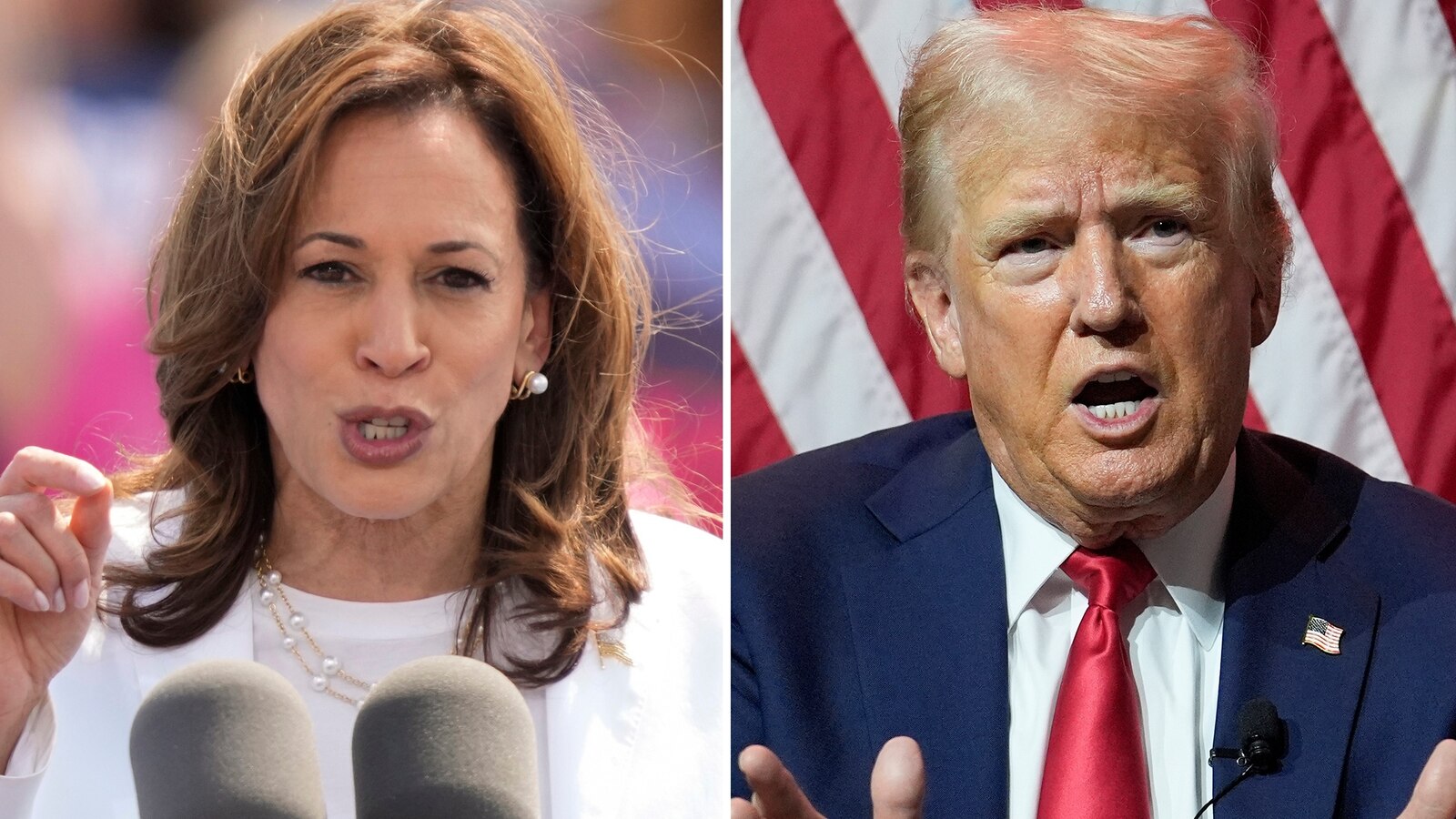Persuading people that she’s got the chops to deal with the economy as well as the empathy to understand their problems is a key task for Vice President Kamala Harris at the Democratic National Convention and beyond.
She’s got competition: An analysis of ABC News/Washington Post/Ipsos polling data shows that the same to-do items top the list for former President Donald Trump.
Preferring Harris over Trump to handle the economy narrowly outweighs thinking she “understands the problems of people like you” in predicting vote preference for Harris. Harris currently trails Trump on the economy, while leading him in perceived empathy.

This combination of photos shows Vice President Kamala Harris, left, on Aug. 7, 2024, and Republican presidential candidate former President Donald Trump on July 31, 2024.
Charles Rex Arbogast/AP, FILE
Both are strong elements of candidate choice, displacing traditional items — political party identification, ideology and race/ethnicity — as top predictors of vote preference in a statistical analysis called regression produced by for ABC by Langer Research Associates.
These predictors largely are consistent in predicting support for Trump. Thinking he’s the candidate better suited to handle the economy again is the top predictor, followed closely by thinking he understands your problems.

Democratic presidential nominee Vice President Kamala Harris, left, greets customers at Primanti Bros. restaurant during a campaign stop, on Aug. 18, 2024, in Pittsburgh, Pa.
Julia Nikhinson/AP
Regression analysis holds variables constant to see which emerge as independent predictors of an outcome. In predicting intention to vote either for Harris over Trump, or Trump versus Harris, models using only demographic variables explain 55% of the variance. Adding perceived empathy and trust to handle the economy boosts this to 70%, a robust model.
After the economy and empathy, other predictors of preferring Harris over Trump include being a Democrat, having more education and being liberal. In predicting the opposite — a vote for Trump — further predictors include being a Republican, living in a rural area, having less education and being conservative.
The analysis marks the central importance of establishing both empathy and economic stewardship in attracting support. Current standings show why the race is close: Trump leads Harris by 9 points, 46-37%, in trust to handle the economy, while Harris leads by 7 points, 40-33%, on empathy.

ABC News/Washington Post/IPSOS Poll
Notably, 26% currently don’t prefer either candidate on empathy and 16% don’t trust either on the economy. Those skeptical voters are ones to which Harris, and Trump alike, may best make their case.
Currently, they go in different directions: Among people who don’t trust either candidate to handle the economy, it’s 53-22%, Harris-Trump, with 18% intending to vote for someone else. Among those who think neither candidate understands the problems of people like them, by contrast, it’s 49-35%, Trump-Harris, and 14% for someone else.
Methodology:
Intention to vote for Harris over Trump in November was modeled using logistic regression, with binary responses from Q3_Q5net as the dependent variable, coded as 1) Harris/Walz and 0)Trump/Vance. That’s flipped for intention to vote for Trump over Harris, with 1)Trump/Vanceand 0) Harris/Walz. Independent variables are listed in the table.

